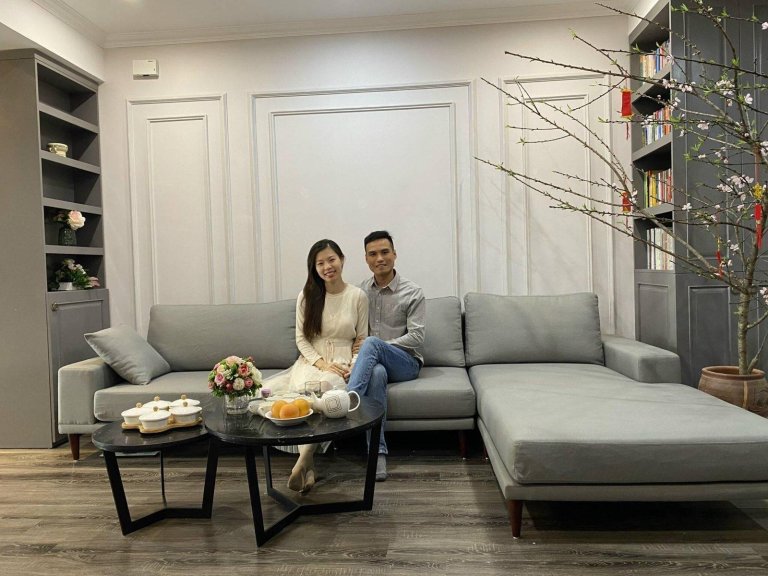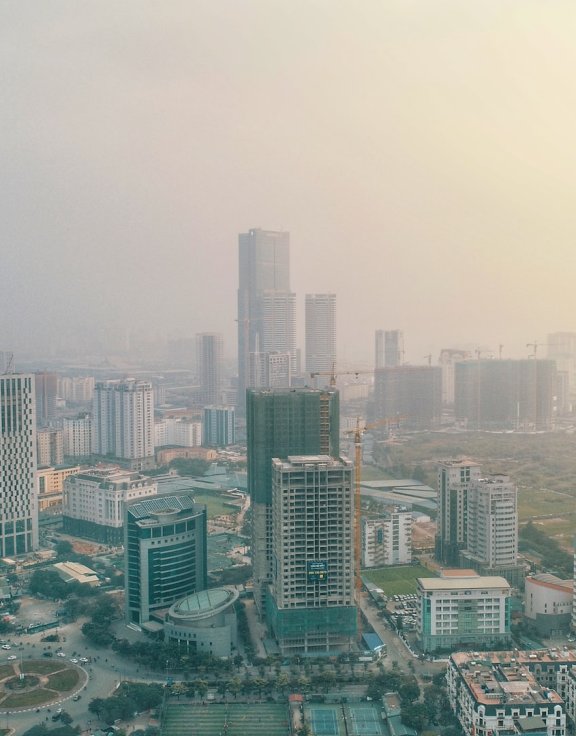- About
- Topics
- Picks
- Audio
- Story
- In-Depth
- Opinion
- News
- Donate
- Signup for our newsletterOur Editors' Best Picks.Send
Read, Debate: Engage.
| topic: | Political violence |
|---|---|
| tags: | #Vietnam, #activism, #environmental justice, #political violence |
| located: | Vietnam |
| by: | Tran Phuong Thao |
Today marks the beginning of Tết, the most sacred and significant holiday in Vietnamese culture. It is our Lunar New Year, a time that brings families together to celebrate and encourage good fortune in the upcoming year. Sadly, instead, my family will be mourning the one-year anniversary of my husband’s unjust sentencing to five years in prison.
My husband is Dang Dinh Bách, a prominent environmental justice lawyer in Vietnam. He started the Law and Policy of Sustainable Development Research Centre, a nonprofit representing marginalized communities on issues concerning land rights, harmful pesticides, and pollution from coal power plants.
Nearly two years after Bách led a 17-day campaign for action against Vietnam’s reliance on coal he was taken from our family on alleged “tax evasion” charges. I remember the morning the police came. I was nursing our baby who was only 5 days old, shocked by the strangers in my bedroom. Bách barely had time to declare his innocence before they whisked him away without an explanation or warrant.
This is highly unusual given that the standard process for tax evasion is first an investigation and then a fine by tax authorities. United Nations Human Rights Council experts have raised their concerns about Vietnam’s ambiguous tax laws being used to silence civil society leaders.
In the months leading to Bách’s trial, we were not allowed to see or speak to him. He was denied access to a lawyer for seven months after his arrest and denied medication for his asthma. One year later - on 24 January, 2022 - Bách was prosecuted in a closed trial at the People’s Court of Hanoi, which we were not allowed to attend. His lawyers later relayed that my husband appeared physically weak having been on a hunger strike for 14 days.
Bách's five year sentence was two more years than the prosecution’s recommendation, even without evidence of tax evasion or hearing his defense. Bách said he would prove his innocence until his last breath. Now he is paying the price of refusing to plead guilty to a crime he did not commit.
I never imagined Bách would be imprisoned for the work he’s done to help the people of Vietnam and our environment. His top priority has always been the health and well-being of others, and he has always abided by the law. My husband is cherished and highly respected among the communities he’s helped protect, like the people of a village in Thanh Hoa province who have been battling cancer, dying, and having babies with birth defects after a pesticide manufacturer illegally buried tens of thousands of tons of toxic pesticides in the ground nearby.
I am very proud of what my husband has achieved and the progress he’s made on protecting Vietnam’s environment. He was instrumental in launching a review of Vietnam’s Environmental Protection Law and helping the country adopt its first legislation to limit the production and import of plastics, ban the use of asbestos, and scale back its plans to expand coal production. This work will benefit generations to come, including our son.

Thao and Bach. © Tran Phuong Thao
Bách is not alone in this trend. Other prominent environmental defenders were arrested within the same year as Bách on similar charges and also sentenced to multiple years in prison, including internationally renowned climate expert and Goldman Environmental Prize winner, Nguy Thi Khanh.
Khanh raised public awareness about the link between coal plant emissions and Hanoi having some of the worst air pollution in the world; conducted research to demonstrate the cost-effectiveness of solar solutions in Vietnam; and worked with provincial governments to reduce coal expansion plans.
The work of civil society leaders like Khanh and Bách have paved the way for Vietnam’s commitment to net zero emissions by 2050 and the subsequent $15.5 billion Just Energy Transition Partnership (JETP) recently announced between G7 nations and Vietnam. This multi-billion dollar deal is meant to help Vietnam finance its transition away from coal to renewable energy sources in a fair and equitable process. In my most recent correspondence with my husband, Bách expressed his deep concern about the need for the people of Vietnam to monitor the implementation of the JETP funds for the benefit of all. I worry that the process will be more difficult and may not succeed at all without the involvement of Bách and other environmental experts being involved. If there is to be any justice in Vietnam’s “just” energy transition, we need people like my husband to be free.
On this one-year anniversary of my husband’s sentencing, during the week of Tết, I hope the government will show compassion on our family and recognize Bách’s commitment to his country and supporting its transition to clean energy. My hope is that together we can bring good fortune this new year, so all of Vietnam’s people may have better years to come.
Image by Anz Design.
